Sex Reassignment Surgery (Male to Female) in Central
Search and Compare the Best Clinics and Doctors at the Lowest Prices for Sex Reassignment Surgery (Male to Female) in Central
Our partner clinics in are accredited by the following associations













































































































































Compare Before & After Photos of Sex Reassignment Surgery (Male to Female)
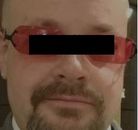












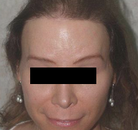





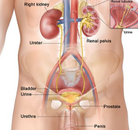

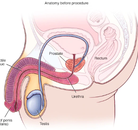

No Time?
Tell us what you're looking for and we'll reach out to the top clinics all at once
WHY US?





































































































































































No Time?
Tell us what you're looking for and we'll reach out to the top clinics all at once
What you need to know about Sex Reassignment Surgery (Male to Female) in Central

Also known as Gender Reassignment or Sex Change Surgery, Sex Reassignment Surgery (SRS) involves the surgical procedures required to change a person’s sexual characteristics from one gender to the other. The procedure can be used to transition a person from Male to Female and from Female to Male. Male to Female procedure involves reshaping of male genitals to appear and function as female genitalia (including a vaginoplasty), hair removal therapy, hormone replacement, facial feminization surgery, and Breast Augmentation.
Hormone treatment is started one year prior to surgery and continues after, where estrogen helps to reshape the body’s contours and stimulates the growth of labia majora. At least one therapist will be required to assess a patient’s psychological wellbeing before the go-ahead can be given.
The decision to have a breast augmentation should be an informed one that takes into account the potential risks and side effects. You should also have realistic expectations about the results of breast implant surgery to avoid disappointment. Find out about the procedure, the recovery period and any possible complications - ask your doctor or surgeon if you are unsure about anything.
What does a Sex Reassignment Surgery (Male to Female) Procedure Involve?
Clinically speaking, sex change operation is known as “Genitoplasty Procedure”. This type of procedure can be performed to transition an individual from female to male and from male to female.
It is very important to understand that before you undergo surgery, you will need to first transition. Gender transition is a lengthy process that requires a lot of patience and resilience. In addition, it will be of great help if you have a strong support system to back you up in times of difficulty. It’s also essential that you have a therapist to not just help you with your emotional wellbeing before and after the transition, you will also need a letter of recommendation from your therapist before your surgery.
Transitioning from male to female will involve penectomy (removal of the penis), orchiectomy (removal of testes), vaginoplasty (creation of a vagina), and feminizing genitoplasty (creation of female genitalia). During the surgery, you will be induced with a general anesthetic.
You must start hormone treatment a year prior to your surgery to help reshape your body contours and stimulate the growth of your labia majora. Hormone treatment will be continued even after your sex-change operation.
There are popular MTF sex reassignment surgery techniques which you can choose from, two of which are: sex reassignment surgery with skin graft technique - the most popular SRS procedure, vaginal depth is up to 13-15cm (5-6 in). Another is sex reassignment surgery with colon graft - suitable for people with less scrotal skin and those who prefer a lubricated vagina and is considered as the most expensive procedure.
There are other procedures that you can undergo to fully transition from male to female. These may include; breast implants, facial feminization surgery (FFS), and another procedure would be to minimize the appearance of your Adam’s apple, etc. All procedures to help one fully transition will vary on the individual’s need and of course, their budget.
Prerequisites to Surgery
- Patients must be at least 20 years old or have consent from parents / legal guardians for those between 18 and 20.
- At least 12 months of successful and continuous real-life experience living as a woman.
- At least 12 months of continuous hormonal therapy.
- Must consult with a psychiatrist in the home country and in the country where the procedure will be performed (this can be arranged in your chosen hospital in Central).
- Physically fit for surgery.
Popular MTF Sex Reassignment Surgery (SRS) Techniques
1. SRS with Penile Skin Inversion
- Suitable for patients who do not want a vagina for sexual intercourse, particularly popular with elderly trans people. Depth is around 2-4 cm (1-2 in) and penile hair removal is required prior to surgery.
- Surgery: 2.5 hours
- Hospitalization: 4 nights
- Recovery time in Central: 3-4 weeks
2. SRS with Scrotal Skin Graft
- Scrotal skin is used to create a vaginal depth of up to 13-15 cm (5-6 in), depending on skin quality and quantity (additional depth is possible by using groin skin). This is the most popular SRS procedure.
- Surgery: 4 hours
- Hospitalization: 6 nights
- Recovery time in Central: 3-4 weeks
3. SRS with Sigmoid Colon by Laparoscopic Technique
- The Sigmoid colon is used to create the vagina, allowing for greater depth than what is possible with SRS with a scrotal skin graft. More suited to those with less scrotal skin or those who prefer to have a lubricated vagina, like that of a biological woman. By far the most expensive technique.
- Surgery: 6 hours
- Hospitalization: 7 nights
- Recovery time in Central: 3-4 weeks
How Long Should I Stay in Central for a Sex Reassignment Surgery (Male to Female) Procedure?
A lot of patients prefer having surgery overseas since it is far less expensive and most countries, like Central, have a very high success rate in terms of plastic surgery and gender reassignment surgery.
Recovery after surgery will be a long and painful process. It will also require several follow up procedures as well as constant monitoring so you will have to stay a little bit longer at the hospital until you are ready to be discharged. Generally, allow for a minimum of 3 weeks stay in Central after your surgery, this will allow for the removal of stitches and a few weeks of follow up visits with the surgeon.
What's the Recovery Time for Sex Reassignment Surgery (Male to Female) Procedures in Central?
Smoking before and after the surgery is highly discouraged and avoid smoking for at least two weeks to reduce risks of non-healing.
Most people are able to return to work in about 4-6 weeks after a sex change operation. Furthermore, you can resume strenuous work and exercise after 2 months. It is vital that you strictly follow all medication instructions during your recovery period.
Keep in mind, recuperation incorporates not only physical healing but also emotional rejuvenation. The Sex Reassignment Surgery (Male to Female) implies a noteworthy modification in your way of living and acclimating to an altered body image and social identification requires patience. Mental health guidance proves to be an important element in the healing journey, offering emotional assistance and managing any mental obstacles that come up.
What sort of Aftercare is Required for Sex Reassignment Surgery (Male to Female) Procedures in Central?
Social support is very important before and after the surgery, especially the support that comes from your family and loved ones. You have to be socially and emotionally stable before you undergo the operation. This is why it is required that you have proper counseling to help you with your emotional wellbeing. You have to prepare yourself mentally, before, during and after transition because it can be quite overwhelming and stressful.
It is also important that you maintain a regular check-up with your local doctor to monitor the progress of your healing and avoid complications.
What's the Success Rate of Sex Reassignment Surgery (Male to Female) Procedures in Central?
The success rate for a sex change is very high nowadays, given technological advancements and the greater experience of surgeons. Gender reassignment surgery from male to female has a higher success rate than female to male; this is why more male transgender people opt for a sex change.
However, given the nature and complexities of this type of surgery, you also have to be aware of its complications, for example, there is always a possible risk of infection, severe pain, given the intrusive nature of the surgeries and the potential for blood clotting and scarring.
Possible side effects may also include a decreased sexual sensation and ability to orgasm, fistula (opening between rectum and vagina), narrowing of vagina and hair growth in the vagina from the grafted tissue and the partial death of tissue used to create the new vagina.
Are there Alternatives to Sex Reassignment Surgery (Male to Female) Procedures in Central?
There is no alternative to a sex-change operation for those who want to fully transition their body to match their gender identity. Undergoing gender reassignment surgery will require a lot of time, energy, patience, and of course money. A vast majority of people who experience gender dysphoria never really surgically alter their appearance. Instead, they use creams and hormonal pills to alter their bodily appearance. Estrogens (female hormones) will help develop the breast, widen the hips, help lose facial hair and slightly increase voice pitch.
Popular Procedures to Combine with SRS
- Usually performed in one operation: Orchiectomy to remove the testicles and prevent further production of testosterone, Penectomy to remove the penis and Vaginoplasty to form the female genitalia
- Breast Augmentation to create the breasts, which is usually performed at a later date.
- Facial Feminization Surgery (FFS) and Tracheal Shave to help feminize the facial features and is not necessary for many patients.
- Hair Implants, Hair Removal Therapy, and Continued Hormone Replacement Therapy.
This information has been accurately sourced and verified by a medical professional for its accuracy, however, we strongly recommend you to consult with your doctor before pursuing medical procedures overseas.




